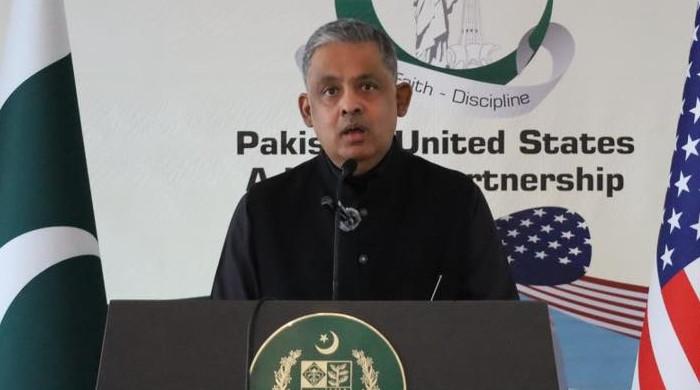No material impact expected if Pakistan included in FATF grey list: Moody's
Moody's expects Pakistan's GDP to grow at 5.5% for FY2018 on back of CPEC related investments and domestic factors.
March 21, 2018
Moody's does not expect Pakistan's inclusion in the Financial Action Task Force (FATF) grey list to have a material impact on its external financing.
Pakistan had perviously been included in the list between 2012 and 2015 but managed to negotiate when its entered into an IMF program.
Moody's does not anticipate any disruptions on borrowing from multilateral sources.
The credit ratings service noted that a strong domestic demand was increasing pressure on Pakistan's external account while external borrowing accounted for a significant portion of Pakistan's debts.
Pakistan's current account deficit has widened driven by a large increase in the good deficit, which is higher due to China-Pakistan Economic Corridor-related (CPEC) capital goods imports.
Moody's noted brighter prospects were expected from exports and remittances, where rising oil prices were likely to translate into a higher remittance inflow from GCC countries.
Exports are expected to rise considering most energy related projects under CPEC were nearing completion and the resulting energy suplly would play a role in boosting production activity.
Given that foreign reserves dipped to a thirty-four month low of $12.1 billion; the State Bank of Pakistan had 2.5 months of import cover on a three month rolling basis, below the IMF's minimum adequacy guideline.
On Pakistan's economy, Moody's noted that the country's economy has maintained its solid momentum through the first half of FY2018. Economic growth has been supported by the ongoing recovery in the agricultural sector, according to the rating agency.
Moody's noted positive signs in the form of an increase in credit disbursements and more favourable weather conditions, robust activity in large-scale manufacturing owing to improved energy availability and capacity expansions.
In light of domestic factors and ongoing investments related to CPEC will likely result in strong growth, Moody's noted, expecting a GDP growth of 5.5 percent for FY2018.
The ratings agency does not anticipate the central bank to aggressively raise rates ahead of the upcoming general elections.











